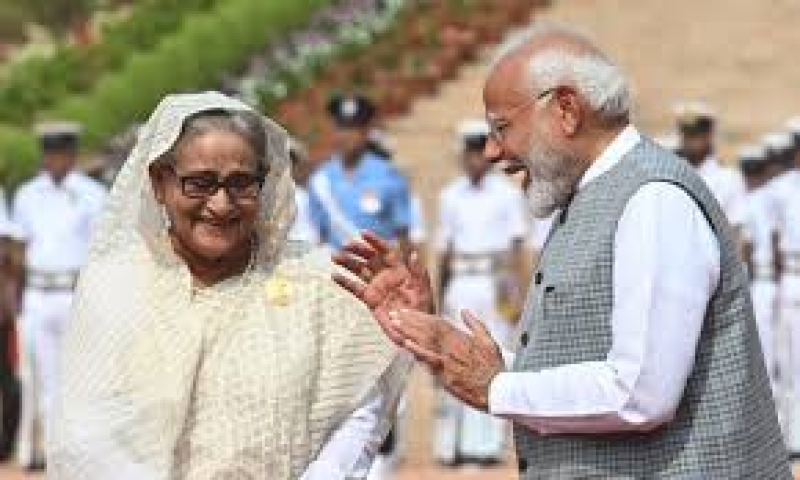- Govt Plans to Keep Two State Banks, Merge Remaining Ones |
- Lab Tests Find 67% Adulteration in Branded Milk Powder |
- DNCC Sets New House Rent Rules, Eases Burden for Tenants |
- RAB Officer Killed, Three Injured in Sitakunda Attack |
- Bangladesh Plans Padma Barrage, First Phase at Tk34,608cr |
India Unlikely to Extradite Hasina, Faces Legal Hurdles

Bangladesh's interim government’s request to India for the extradition of former Prime Minister Sheikh Hasina faces significant challenges, reports Economic Times. Citing sources familiar with the matter, the report suggests India is unlikely to act on the request due to the geopolitical implications and the provisions of the India-Bangladesh extradition treaty, which exempts "political" requests.
Sources claim that Bangladesh's current government, led by Muhammad Yunus, is applying "pressure tactics" to secure Hasina's return. However, India is cautious, as any such move could damage relations with its regional allies.
Hasina, who has been a staunch ally of India, has worked to safeguard India's interests, cracked down on radical elements, and enhanced sub-regional cooperation. Given this, India is expected to carefully review the extradition request, though it may take months. India has a long-standing tradition of offering refuge, as seen in its acceptance of figures like the Dalai Lama.
Political sources also suggest that, if Hasina returns to Bangladesh under the current regime, she could face politically motivated charges. This isn’t the first time Hasina has sought refuge in India—she was exiled here after her father's assassination in 1975.
Her presence in India is seen as a morale booster for the Awami League, which is preparing for a potential political comeback. Hasina fled to India on August 5 following a student-led uprising and has remained in India since.

